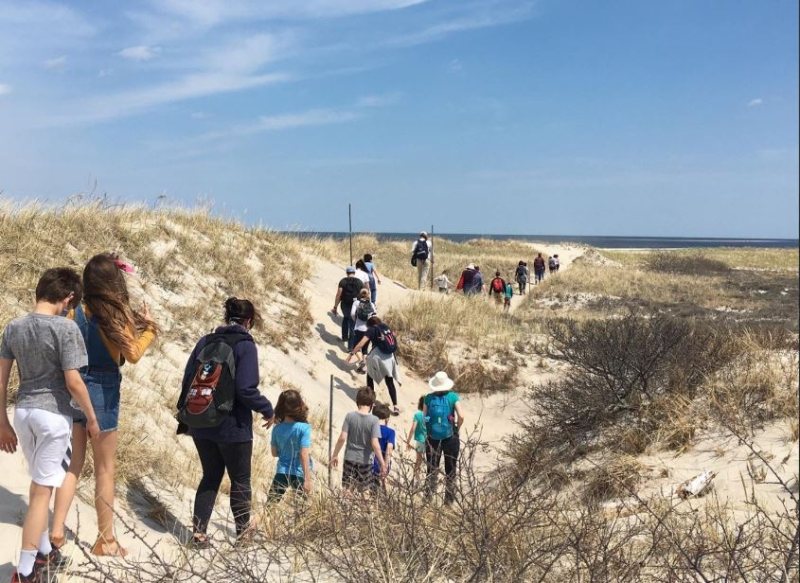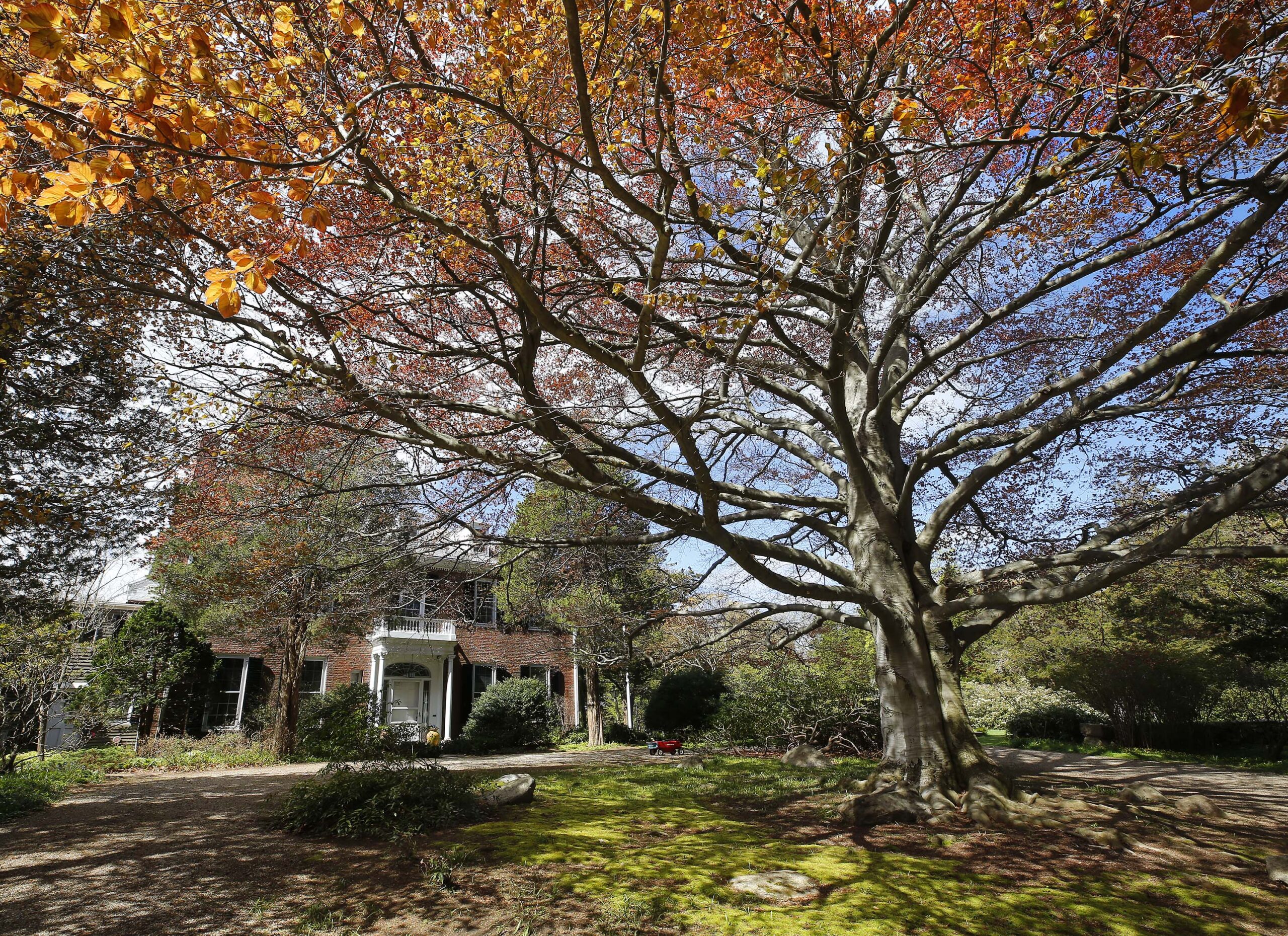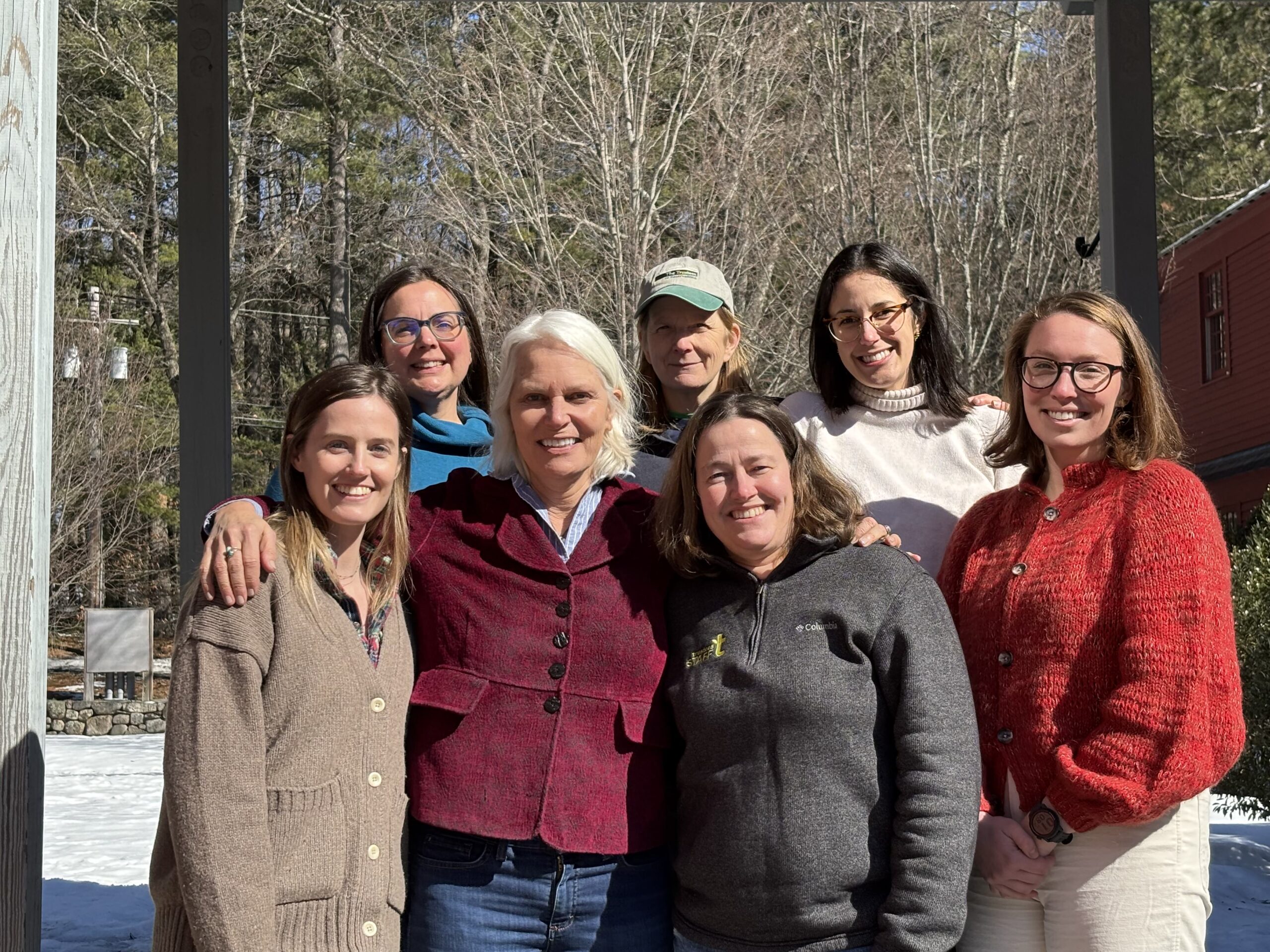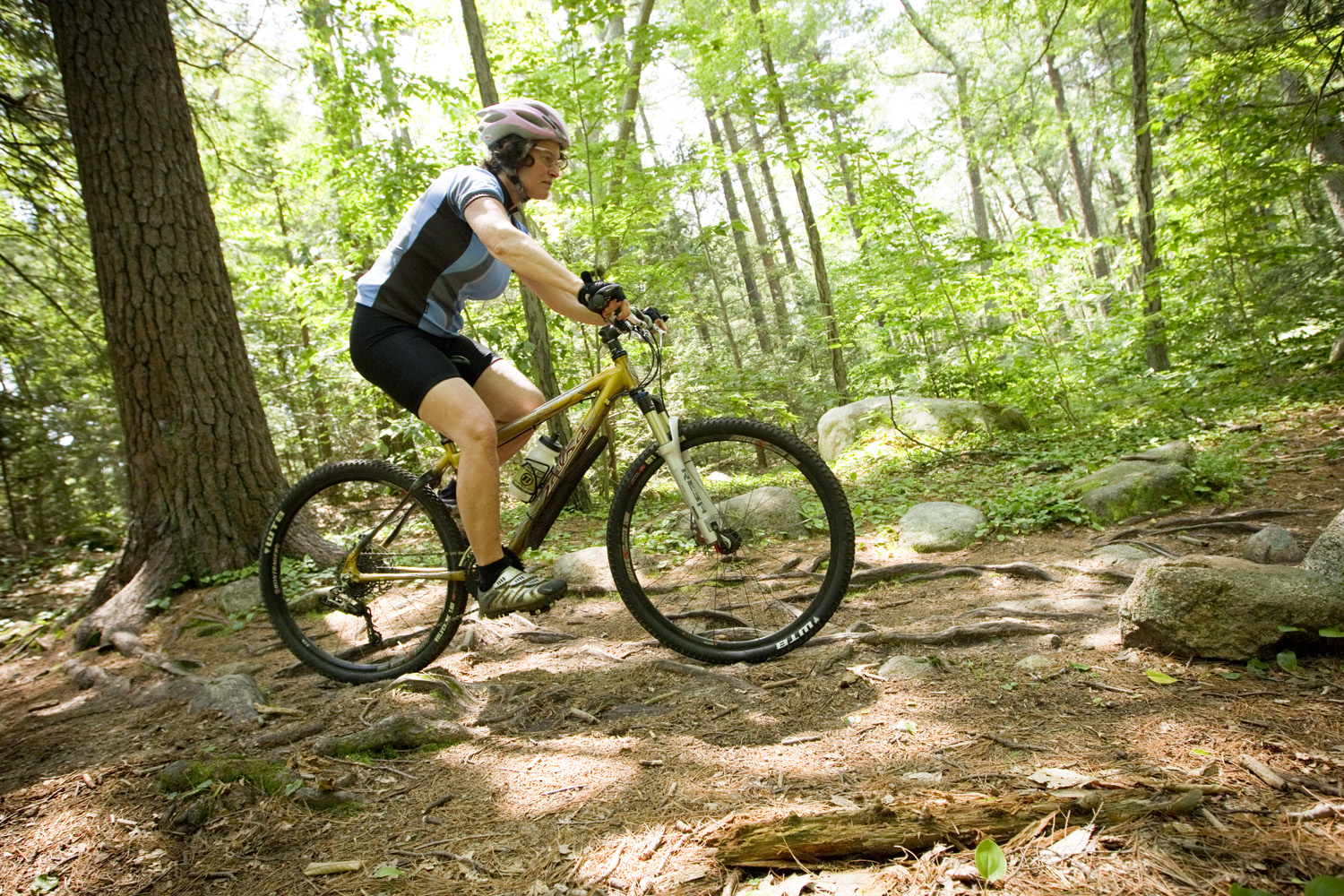
In a part of the Commonwealth where mountain biking trails are scarce, Brooks Woodland Preserve in Petersham is a 13-and a-half-mile oasis. Wide carriage roads and easy single-track routes wind over sturdy bridges and past old stone foundations, an ultra-serene landscape with little elevation gain that compels riders to hit the brakes and revel in silence beneath the oaks and hemlocks. It’s a beautiful, well-maintained property, says Brett Russ, president of the Wachusett chapter of the New England Mountain Bike Association (NEMBA), an advocacy organization with some 7,000 members around the region. It’s also a destination that illustrates how mountain biking can create deeper connections to the world outside. “In order for people to care about something, they need to feel invested in it,” Russ says. “Mountain biking brings people into this environment and builds an appreciation for flora, fauna, and adventure that only the outdoors can provide.” Mountain biking—the breed of cycling in which riders pedal thick-tired bikes along undulating trails, rutty fire roads, and other off-road terrain—is deep into a renaissance. Some 8.3 million people went mountain biking in 2016, according to the most recent figures from nonprofit The Outdoor Foundation, marking a third straight year of ridership growth. Locally, Russ has seen membership in his NEMBA chapter blossom as well. And while maneuvering the Commonwealth’s rocky, rooty terrain can demand a veteran’s savvy, Trustees-maintained trails throughout the state welcome cyclists logging their first miles off of asphalt. “Our properties aren’t seen as intimidating—they’re usually right-in-your-backyard kinds of places,” says Brian Westrick, Trails Team Manager for The Trustees and an avid mountain biker himself. “If we can create experiences that are welcoming, user-friendly, and open to beginning mountain bikers right off the bat, we can expose people to a different type of recreation.”
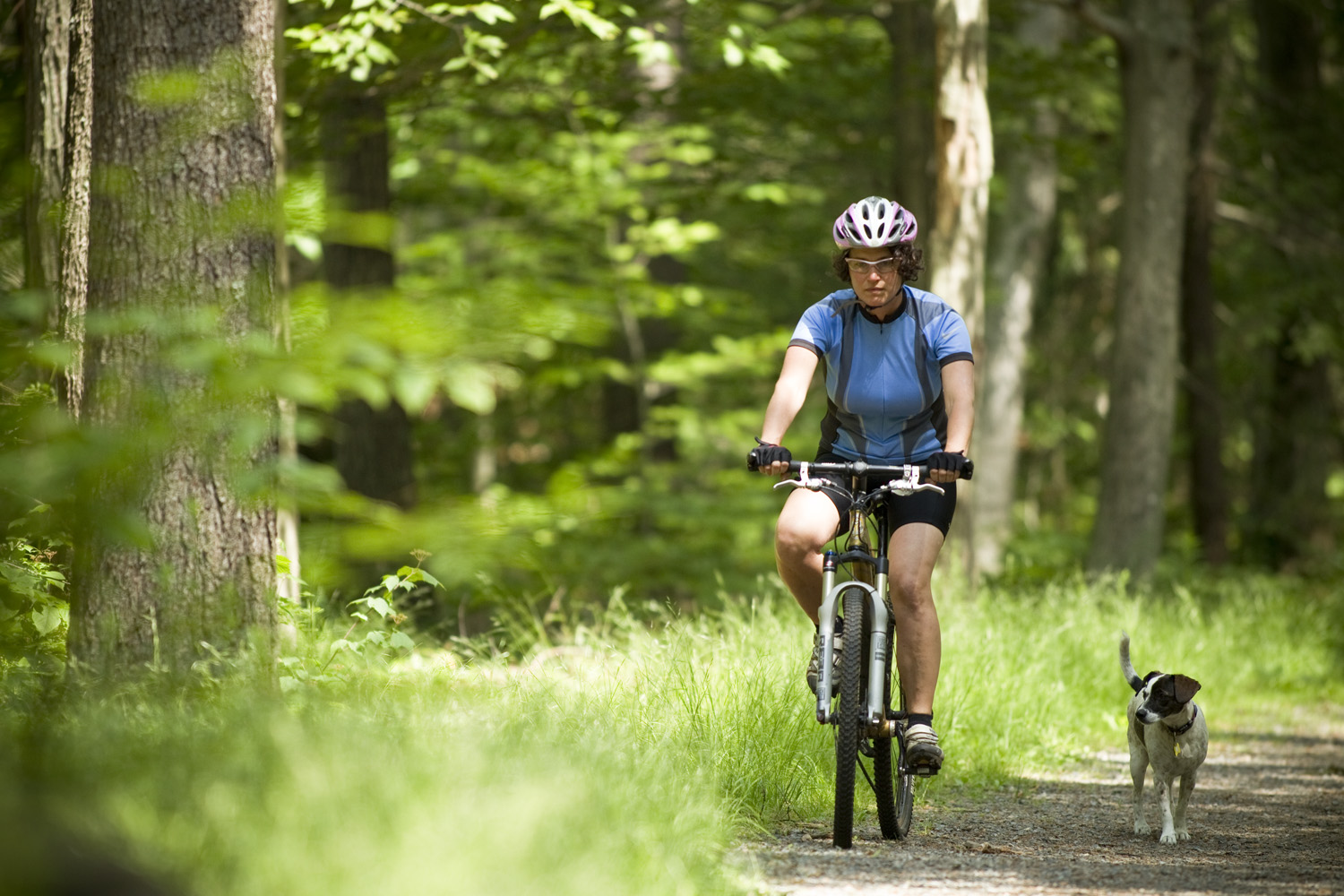
IT TAKES ALL KINDS
Mountain biking is calibrated to virtually every personality—contemplative introverts, coffee-hour chatterboxes, thrill-seeking athletes, and low-key dawdlers. And while stereotypes of adrenaline junkies leaping off cliffs are hard to erase, entry-level mountain biking might as well be hiking’s two-wheeled sibling: in fact, a range of independent studies have found the environmental impact of conscientious mountain biking on par with hiking. And the pace—brisker than walking, slower than gas-powered travel—allows riders to cover dozens of miles without reducing the panorama to an inscrutable blur. “You can actually see more while mountain biking than if you were just hiking or jogging,” says Tom O’Shea, The Trustees’ Program Director for Coast and Natural Resources, who rides at least twice a week. “You’re moving faster, but it becomes almost meditative in a way. It takes your mind off of other concerns and distractions, and you’re focused on the present moment.”
Beyond Brooks Woodland Preserve, The Trustees has a range of properties suited to novice and intermediate mountain bikers. In metro Boston, Noanet Woodlands in Dover offers three main double-wide trails of mostly easy grades that wind past ponds and geologic features across nearly 600 acres. The property connects to Hale Reservation, whose trails combine to offer Noanet visitors a 20-mile ride. “There are quite a few cart paths, but there are also areas where you can challenge yourself on single-track and rocky terrain,” Westrick says. Whitney & Thayer Woods in Hingham & Cohasset is a variation on the same theme: a 10-mile blend of wide carriage roads and single-track connects to Wompatuck State Park, enabling cyclists to turn lunch-hour excursions into all-afternoon outings. On the North Shore, 10 miles of largely single-track trail course through the fields and grasslands of Ward Reservation in Andover, an intermediate-to-challenging slice of terrain punctuated by three hills; seeing the Boston skyline from 420-foot Holt Hill is an entrancing reward for the climb that precedes it. Outdoor equipment retailer REI recently awarded The Trustees a grant to fund a trail renovation at Ward Reservation geared toward beginning and intermediate mountain bikers, a project that will likely come to fruition later this year and involve smoothing out terrain and improving river crossings. “This will be a great introduction to the property, and since the rest of the property is also open to mountain biking but can be a little more advanced, [visitors] can go beyond here as they get better,” Westrick says.
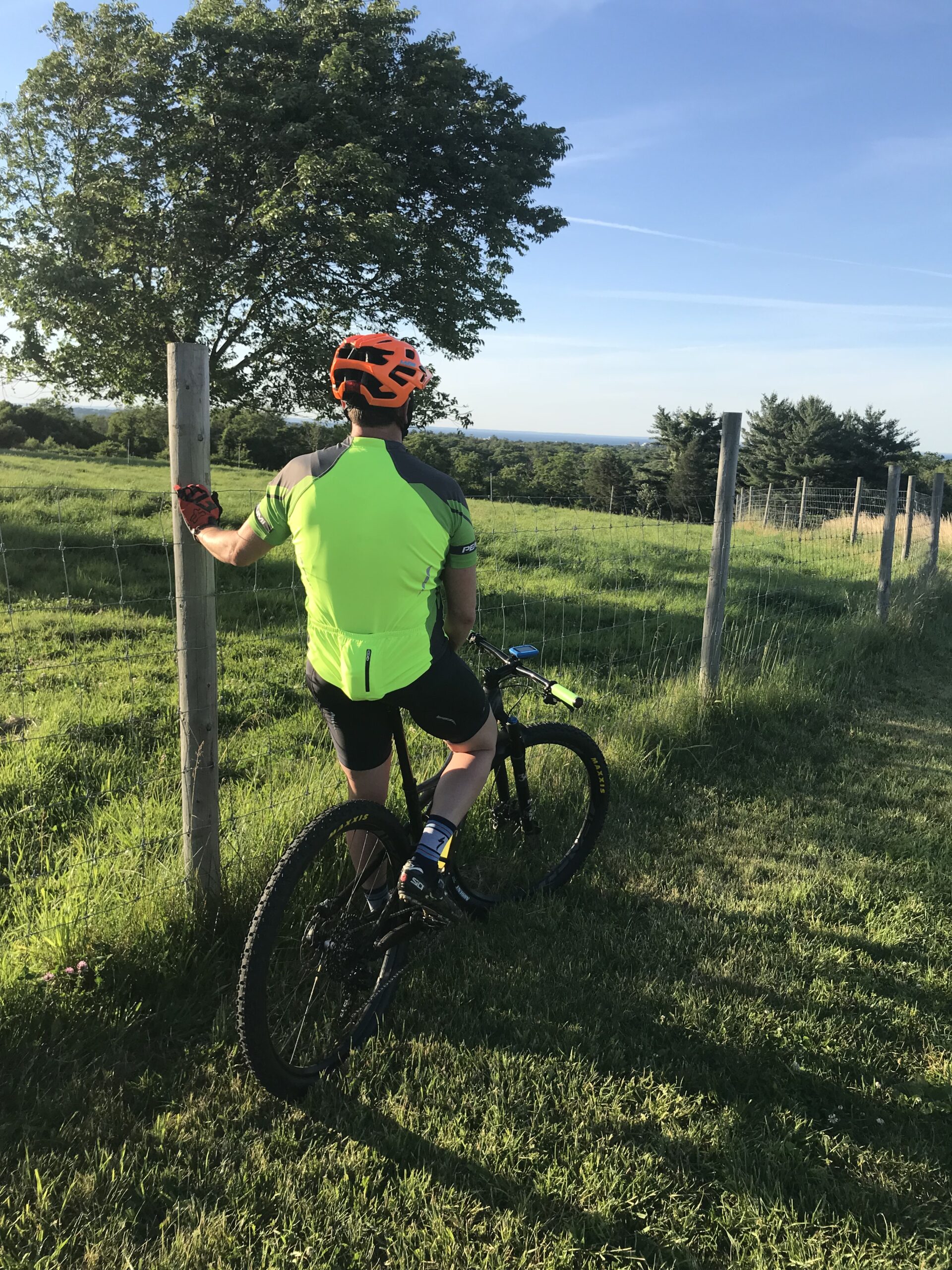
Photo by Jason Cameron
HOP ON, RIDE OFF
For hikers and runners interested in crossing over, the only requisite equipment is a mountain bike and a helmet. Regardless of experience level, Westrick reiterates the value of mountain biking etiquette: keep off trails during the muddy spring to prevent tires from digging ruts, avoid cutting new trails and disturbing sensitive vegetation, and yield to walkers, hikers, and horseback riders. “We want to create a culture that’s welcoming for everybody, including mountain bikers, and where everyone can coexist on our trails,” he says. Over time, a passion for mountain biking tends to foster a passion for land conservation, too. “I see mountain bikers joining town trail, conservation, and open space committees; helping put on charitable events, and always willing to volunteer,” says Russ, the NEMBA Wachusett chapter president. And they all started the same way: they found a trailhead, hopped in the saddle, and enjoyed the ride. Visit nemba.org to find upcoming group rides, skill clinics, and trail-adjacent bike shops, and check thetrustees.org for mountain biking opportunities on Trustees trails.

